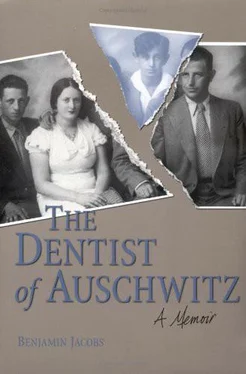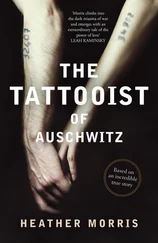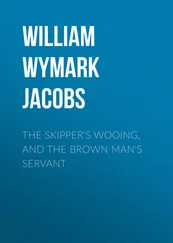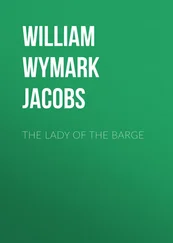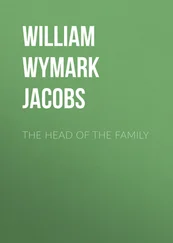Josek, Srulek, and I were the only Jews in Lüdenscheid. Though my spirituality was still undefined, having been adrift during so many years of squalid life, in darkness and away from my heritage, giving up God was still against my conscience. The spiritual vacuum in which we had been living during the past years had produced a certain void within me. I needed to confirm my faith. So when we heard that a Rosh Hashanah service would be conducted at a Jewish person’s home in the nearby city of Hagen—nearly all the synagogues in Germany had been destroyed—my urge to make peace with my heritage became irresistible. I knew that the time had come for me to face God and offer my apology. When we got to the house, about thirty people were praying. When the prayers Oshamnah and Agadnah—I have sinned before thee, I transgressed against thee—were recited, all began to chant, rhythmically pounding on their chests. I too prayed, begging the Almighty for forgiveness. There and then I finally made peace with God.
When the service ended, the man who had led us through the prayers, Morris Teichmann, a handsome, well-respected, middle-aged businessman, came to shake each person’s hand and wish everyone a Lashonah Tovah, a good year. Then Mr. Teichmann invited us for kiddush at his home, where we met his family. Fortunately, they had all survived the war, but their memories were no less painful than mine.
Mr. Teichmann immigrated to Germany from Poland in 1923 and settled in Westphalia. There he married a Christian woman, Herta Steinfort. She converted to Judaism. In 1938 he was arrested and sent to Poland in a mass deportation of Polish Jews. Herta was allowed a choice: to remain in Germany with their three children—Else, thirteen; Clara, ten; and Gerhard, eight. She, and the children went with him. When the Germans occupied Poland, Mr. Teichmann was imprisoned in a labor camp. Herta was threatened with arrest and being sent to a camp unless she divorced her husband. She resisted at first but eventually had to give in to the pressure, as it was the only way she could save their children. The children’s papers stated, “Jewish father and German mother.”
Else blotted out the words “Jewish father” on her papers. To avoid being unmasked, she lived a nomadic life, moving from job to job. She maintained that disguise, and the war’s end found her in Prague. The Soviets, who had seized the city, did not believe her true identity, and they jailed her. Her family almost gave up finding her. But, one day she managed to return with him to Germany. Else became my fiance and Mr. and Mrs. Teichmann became my second parents.
The one object of our lives then was to try to go to the United States. But the restrictive McCarron Act prevented us. Then in 1948 the more just Refugee Act replaced it. Else and I wanted to marry, but because we had separate applications pending, we would have had to have forfeited our turns and reapplied. In 1949 my brother and I came to Boston, to our sponsor, our great-uncle Mordechai Baily. On the first day in America, our names change from Jakubowicz to Jacobs. My brothers name became Joseph Jacobs, and my Benjamin Jacobs. A few weeks later Srulek went to his sponsor in Oregon.
I recall August 22, 1949. The tugboats were slowly pushing our troop carrier, the USS Fletcher, through a shroud of heavy fog into New York Harbor. Suddenly the hand and the torch of the Statue of Liberty emerged. The emotion of stepping onto America’s soil after years of such struggle cannot be adequately described. It seemed as though we were leapfrogging into another age. We were grateful to the American people who opened their hearts and minds to us.
Six months later I returned to Europe, and Else and I married. The town elders honored us by arranging for our wedding on a Sunday. Afterward, we both returned to Boston to face a new life together.
Surviving as a prisoner of the Nazis was a hard and bitter struggle. In the face of the generous freedoms in America, our persecution was even more difficult to translate. I felt pain, lots of pain, but I had to suppress it. I envied everyone everywhere who had escaped this terrible ordeal. In America in 1949 people had already heard of Hitler and his deeds and were not eager to hear more. Only later generations wanted to know what had happened to the European Jewry. By this time a new term had arisen to identify the Nazis’ mass murder and torture of millions of European Jews: Holocaust . [6] I am the least important person in this book. It is the memories of the events that overtook us that must be remembered.
My priority, of course, was practicing dentistry. I studied English and applied for admission to Tufts Dental School. Hearing of my experiences with dentistry, the dean, Dr. Joseph Volker, said that he regretted to advise me that an act of Congress, the so-called GI Bill, offered preference to the returning soldiers and that several years might go by before my application would be acted upon. It was not realistic for me to wait, as I expected my fiancée, soon to be my wife, to come to the United States soon.
One day, while in a Boston hospital waiting room experiencing the discomfort of abdominal pains that still plagued me, I was offered a job in sales by the comptroller of an electronics firm. I held that job for two years. Then, with my brother’s, my father-in-law’s, and my wife’s help, I established my own company. In 1953, at the time of the Korean War, Tufts Dental School encouraged me to reapply for admission. My firm grew, however, and was successful. I remained a businessman until 1987. My brother, unfortunately, died in 1965 at age fifty-one.
In 1972 I accompanied Else to Hamburg, where she was called to testify in a Nazi’s trial. By then Germany had gone through various stages in dealing with guilt. After many denials there was slow admittance. The most hopeful signs came in the 1960s, when West Germany perceived its obligation and began to help the Jewish survivors and the emerging state of Israel. Attitudes changed, but not all for the better. Some Germans remained true to nazism’s undemocratic principles, championing the idea that “enough is enough.” This is not to mention the neo-Nazis, whose threats are still the most unsettling. Of course, it would be unfair not to mention the many people who committed the past to memory and supported true democracy.
After Else testified, we rented a car and drove from Hamburg to Neustadt. I wanted to know the exact place of the Cap Arcona catastrophe. A lot had changed there. One person directed us to a little hill in nearby Timmendorf. We walked along the shore and soon saw a sign in front of a set of stairs leading up a hill. There, tucked away, was a cemetery, overgrown and neglected, with a huge single grave of the victims who had washed ashore. The sign listed their nationalities only. Next we found another cemetery, in which the markers gave names from around the world. One placard told of the tragedy of the ships. Another listed the nationalities of all the victims. The entire area was overgrown with weeds. Compared with the crime it symbolized, it seemed rather obscure. The tragedy of many years past stared us in the face. I stood confused and bewildered. Those who perished there were not just prisoners: they were tough, tenacious, and unrelenting fighters, with hearts stubborn enough to survive all the Nazis cast upon them. Yet they died on the very doorstep of freedom.
We later stopped at a small house that seemed to be a post office. I walked in and saw a small window with an elderly man behind it. Besides him no one was there. I thought he would remember. I asked him how long he had been living here. “All my life,” he answered.
I decided not to say who I was. I would just act mildly interested, as any tourist would. I said, “I noticed a cemetery up the hill. I understand that a lot of people perished here?”
Читать дальше
